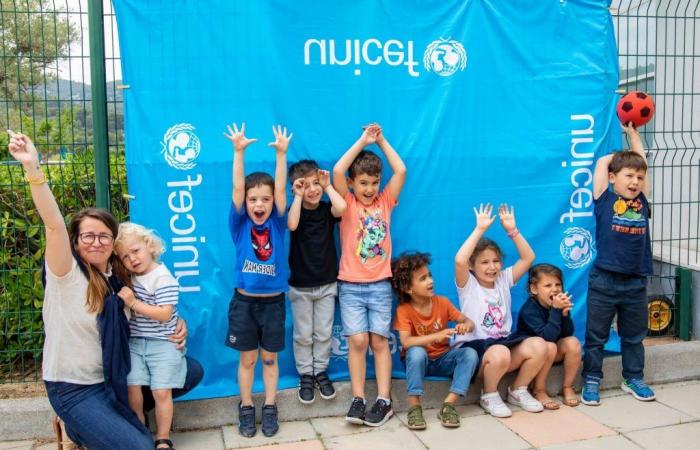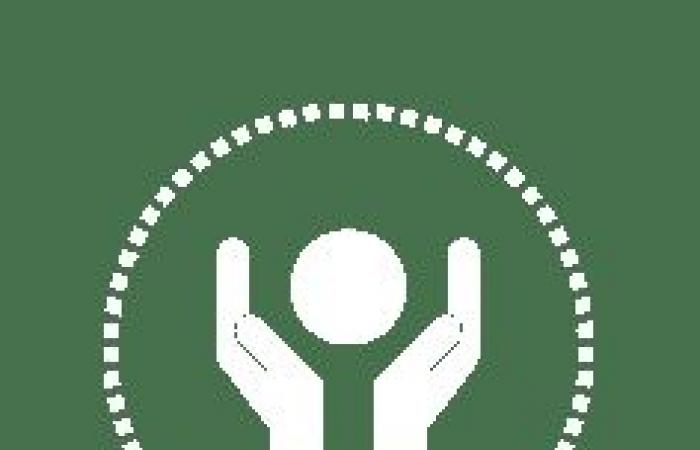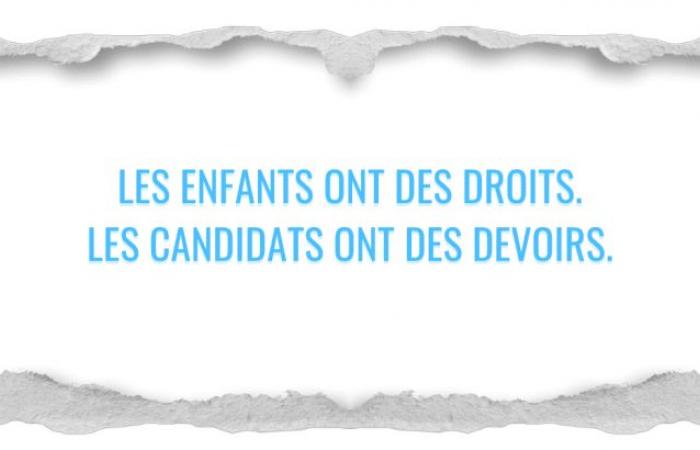©UNICEF France
“The hope of the world rests in future generations”. These are the words that announced the creation of UNICEF, the United Nations agency for children’s rights in 1946.
Since its creation in the aftermath of the Second World War, UNICEF has been dedicated to ensuring the protection and survival of millions of child victims of war.
More than 75 years later, our mandate remains unchanged: defend the rights of every child. Everywhere. All the time.
Present in more than 190 countries and territories, UNICEF is today the leading organization in the defense of children’s rights.
In 2023, through our actions:
15.5 million people benefited from protection services (fight against sexual abuse, exploitation, etc.)

13.9 million children had access to education

10.8 million people benefited from psychosocial assistance
At a time when children’s rights are increasingly under attack in France, it is crucial to guarantee a better future for every child, whoever they are and wherever they are, as stipulated in the International Convention on the Rights of the Child ratified by France in 1990.
It is in this context that UNICEF France reaffirms that:
“Children’s rights are non-negotiable. It is up to each of us to work to ensure that public decisions prioritize the interests of the child, protect them and guarantee them a better future. ”
Legislative elections 2024: the time for action is now

A few days from early legislative elections of June 30 and July 7, 2024UNICEF France calls on candidates to commit to making these rights a reality throughout the country.
The 12 recommendations of UNICEF France against the dissolution of children’s rights
France counts 15 million children on its territory. Their specific vulnerability, respect for their rights and response to their needs imply the development of a multisectoral, interministerial strategy equipped with sufficient resources.
1 in 5 children are poor. The economic and social context of recent years poses a significant risk of an increase in child poverty. Measures are needed, such as the implementation of an accommodation policy, which pay specific attention to children and families.
The available indicators concerning children in Overseas Territories confirm an overall more unfavorable situation for children. 8 out of 10 children live in poverty in Mayotte, 6 out of 10 in Guyana. These findings make it necessary to adopt an action plan aimed at responding to all of the identified needs.
A child dies every 5 days as a result of their parents’ mistreatment. Despite the emergencies, the waiting times for protective measures are alarming. Strengthening data, allocated budgets and monitoring the implementation of prevention and child protection actions are essential. The work undertaken under the previous mandate must resume.
The exclusively repressive approach must be reversed in favor of an approach focused on prevention and education. To do this, we must also strengthen investments in juvenile justice and the application of court decisions, both civil and criminal.
The law to control immigration and improve integration produces negative impacts on children’s rights so that it is necessary to repeal certain provisions.
The European Pact on Migration and Asylum which will soon come into force risks worsening violations of the rights of migrant children; everything will have to be done to limit them.
1.6 million children need psychiatric support, but only 800,000 benefit from it. The number of child psychiatrists decreases each year, reaching barely 700. An ambitious policy for child health must be developed based on the preparatory work of the Conference on Pediatrics and Child Health.
The number of children who do not have access to school in France remains unknown. Also, France is one of the countries where the social origin of students weighs the most on their academic success. The success of a policy promoting educational success begins with the implementation of a National observatory of non-schoolingalready announced in September 2023, but not implemented.
We recommend protecting and guaranteeing the right to participation, securing dedicated human and financial resources, strengthening the skills and knowledge of people – including elected officials – working with and for children, and establishing and institutionalizing platforms, mechanisms and processes for meaningful participation of minors.
Also, UNICEF France supports lowering the voting age to 16 for European and municipal elections.
Worldwide, one billion children are highly exposed to climate risks. In France, children who live in overseas territories and disadvantaged neighborhoods are the most vulnerable. The State must strengthen its national and international climate ambition by reducing greenhouse gases, in accordance with the Paris Agreement.
Achieving the objective of development cooperation of 0.7% of GDP is more necessary than ever, while climate change and crises around the world are jeopardizing many advances. Development cooperation, based on the needs and rights of populations, plays an essential role in reducing poverty and helps improve children’s access to basic social services such as health, nutrition, education. , water, sanitation and hygiene.
450 million children live in countries at war. France must place the protection of children and particularly girls in armed conflicts, as well as education in emergency contexts, among France’s diplomatic, military and programmatic priorities, in compliance with International Humanitarian Law and in connection with directly with the commitments made in the Humanitarian Strategy of the French Republic 2023-2027.
On June 30 and July 7, 2024, children’s rights will also be at stake in each polling station. Their achievement is an essential condition for a just and sustainable society.










